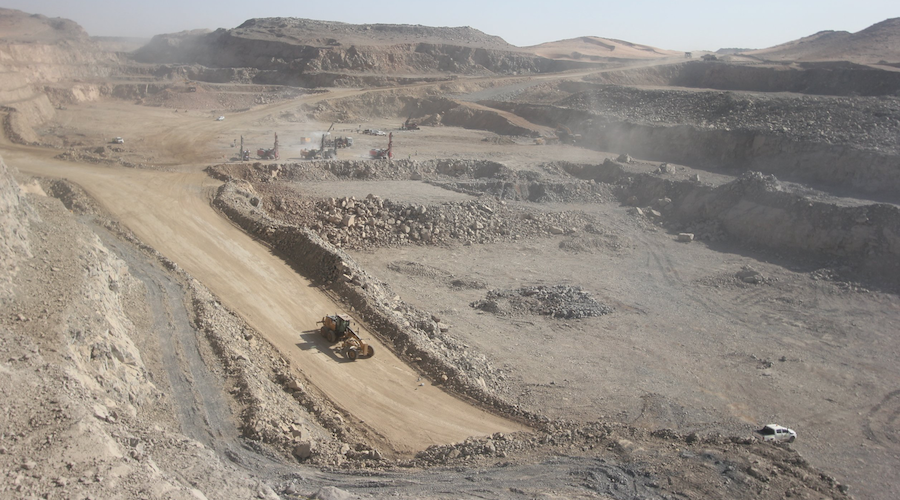
Saudi Arabia says it has the potential to unlock enough copper to ease a looming shortage as the world makes an epic shift to clean energy, but the kingdom faces challenges that established mining countries already have solved.
Key among those challenges as the world’s largest oil producer seeks to unlock an estimated $1.3 trillion in mineral wealth are logistics and water supplies, according to Bandar bin Ibrahim Al-Khorayef, Minister of Industry and Mineral Resources.
“One of the things that the mining sector needs is really a lot of infrastructure,” Al-Khorayef said Friday in an interview at Bloomberg’s global headquarters in New York. “It could be road, could be railway and port” to bring the resources in the north of the country to the east to be processed and then shipped, he said.
Perhaps the biggest hurdle — especially for a country covered in large part by desert — is water, which is essential in churning out the mineral from open-pit or underground mines. “Water is key. If we were to compromise certain technologies, but that would save us water, that would be something very interesting to us,” Al-Khorayef said.
Another challenge may be attracting giant miners with global expertise and deep pocketbooks, who are competing with smaller firms in auctions for exploration rights. This month a license was awarded to the UK’s Moxico Resources Plc, a closely held company with a copper project in Zambia, and Saudi Arabia’s Ajlan & Bros. The potential rewards are huge, with the estimated supply of copper worth $222 billion, at current prices equal to 1.4 times the global mine supply in 2021.
Saudi Arabia is going to award the second tender soon and may start a third, Al-Khorayef said, and is fast-tracking locations that have great reserves ready to go commercially viable.
According to Al-Khorayef, Saudi Arabia is putting processes into place that would allow mining permits to be processed within 30 days. That is in sharp contrast to about seven to 10 years in the US, where there are multiple layers of regulation with extensive environmental and land-rights reviews.
(By Yvonne Yue Li, with assistance from Joe Deaux, Elizabeth Elkin, David Marino and Gabrielle Coppola)
Comments